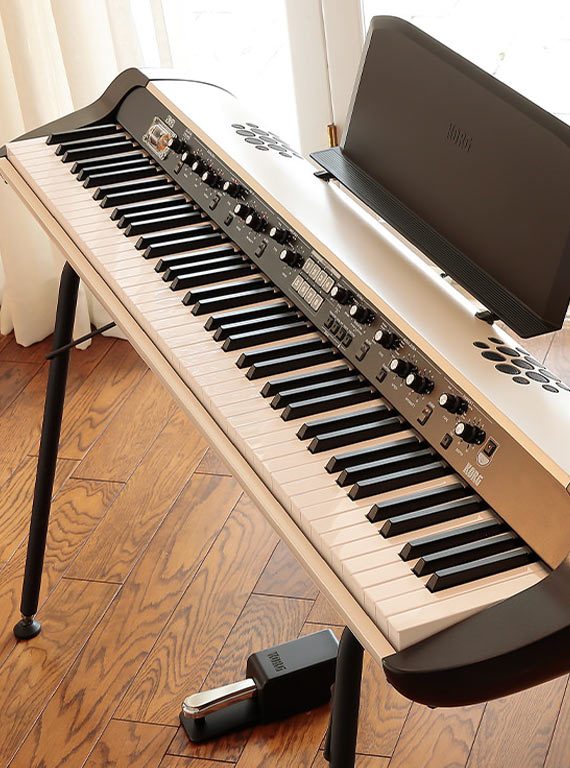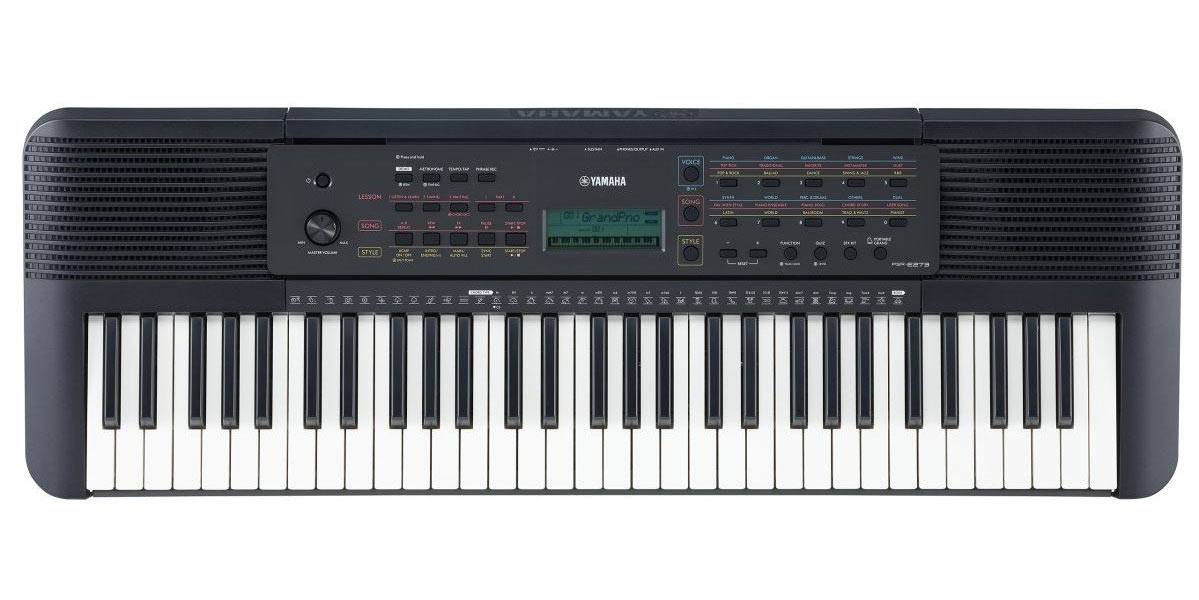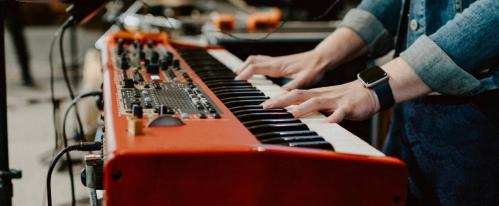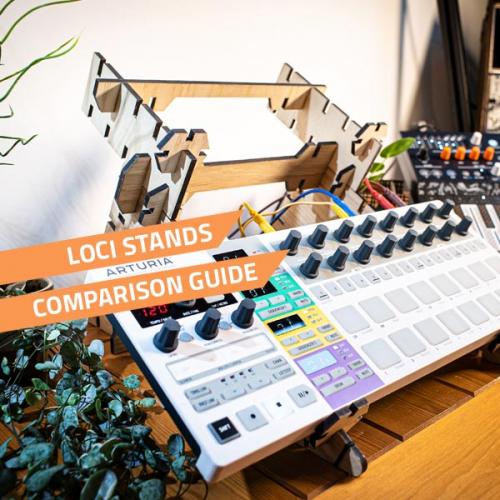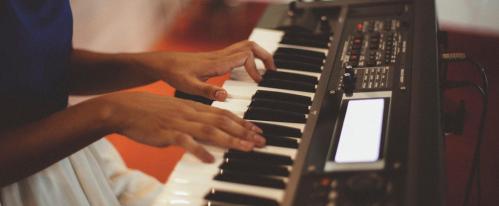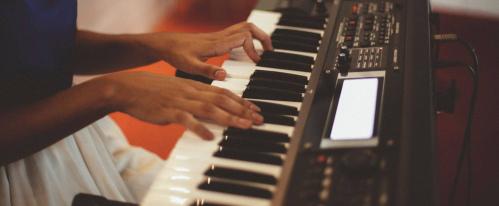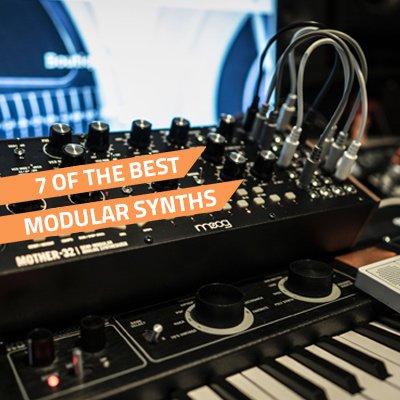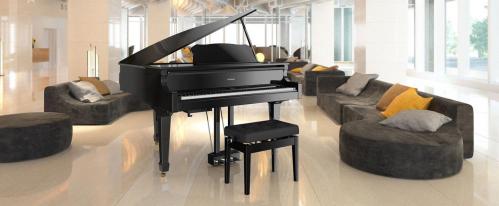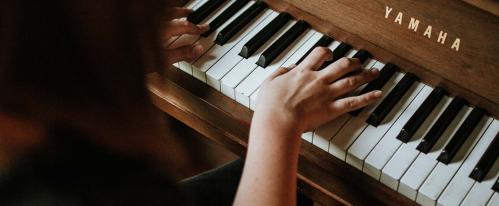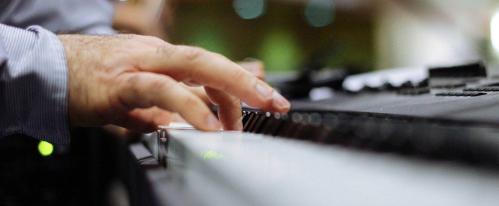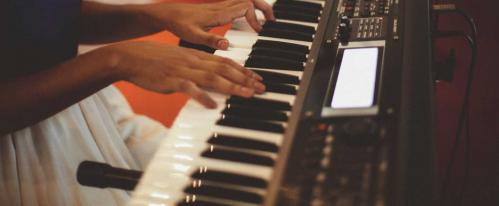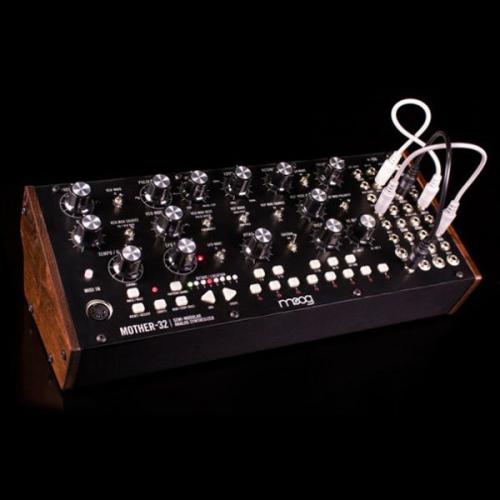READ OUR DIGITAL PIANO AND KEYBOARD BUYING GUIDE AND FIND OUT WHICH OPTION IS BEST FOR YOU.
In this blog we'll talk about the differences between digital pianos, keyboards, synthesisers and workstations, so read our digital piano and keyboard buying guide and let us help you choose the best option for your set up.
Thanks to Digital Pianos and Keyboards, the number of people who enjoy tickling the ivories remains high, with no sign of dwindling: in fact, according to a recent research, keyboards and pianos are the two most popular instruments among school children, played by 58% of the children interviewed by the Associated Board of the Royal Schools of Music, on a study published in September 2013.
Actual acoustic pianos (upright or grand style) are not very common anymore, that's true. Too heavy and too expensive, they're a luxury few can afford, and often not suitable for the average home. Today, they have been replaced by a wide range of different instruments, and brands such as Yamaha sell many different types of keyboards and pianos.
Casual buyers and beginners might find the differences a bit confusing, so in this blog we're aiming to answer the question: what's the difference, between digital pianos and keyboard synthesizers, stage and home pianos, personal portable keyboard and keyboard controllers?
PERSONAL & PORTABLE KEYBOARD PIANOS
Portable keyboards, such as the Yamaha PSR range, are ideal as a first musical instrument and as a student keyboard. However, they are slowly creeping into the world of professional-level music production thanks to their ease of use, low price and high functionality. They are often budget-friendly, smaller in size (hence the portable angle), and have fewer keys than an acoustic piano. Although they are not expected to be "perfect" reproductions of an acoustic piano, they get pretty darn close!
Back in the '80s, similar products were, frankly, rubbish (though today they may seem to have some "retro" charm!) Now, however, they do a much better job at approaching a more realistic feel: thanks to touch response, the keys respond to the intensity of the playing, which is very useful for beginners learning to play the piano. The sound is now much better too, and for untrained ears, these keyboards will sound enough like a piano.
Portable keyboards also do a greater range of different sounds (not always realistic) such as church organ, saxophone, orchestral instruments, drums and even hand-claps. They're a great learning tool for children, and fun for all the family! They're practical because have built-in speakers, and are very straightforward to use because they only have preset sounds, which you can easily select.
Should you want to go for a professional option we recommend the likes of the Yamaha reface CP Electric Piano as they are small, portable and offer incredible functionality that musicians of all levels will appreciate.
BEST FOR:
- First time musicians
- Studio owners
- Music teachers
- Schools
- Churches
- Travelling musicians
DIGITAL HOME PIANOS
We couldn't have a piano and keyboard buying guide without a digital home piano. Digital home pianos are the perfect alternative to the old acoustic upright pianos. They can fit in most average-sized homes and are not as heavy to transport. Unlike small, portable keyboards, these home pianos are full-sized, often with 88-keys like a normal piano.
Most of them also have pedals like traditional pianos and have a look, feel and sound much closer to a proper piano. They sound realistic, look stylish and, besides serving as an alternative to traditional pianos, they actually offer some advantages such as cheaper price, no need for maintenance, never go out of tune, have in-built metronomes and can be played in silence thanks to the headphone output.
You can choose a digital home piano with or without a stand, making them easier to transport should you need to. One of the cool features about digital home pianos is that they often feature an option to split the keyboard into two identical sections. This allows piano teachers to teach students whilst sitting next to them, making the learning experience a lot easier.
PMT stocks some great digital home pianos, such as the Roland LX Range (one of the most well-respected home pianos), and the sophisticated Yamaha Clavinova Home Pianos.
BEST FOR:
- Experienced musicians
- Studio owners
- Churches
- Schools
- Music teachers
Here's a video that shows the different - and very realistic - sounds you can get from a digital home piano:
DIGITAL STAGE PIANOS
No digital piano and keyboard buying guide would be complete without Digital Stage Pianos . These incredibly powerful instruments share the same DNA of home pianos (super realistic sound and feel, full-sized with 88 keys on most cases) but, as the name suggests, they are meant to be used live.
This can sometimes mean they don't come with stands, which is worth considering before you buy. Digital stage pianos are often designed to be more easily transported, they don't have educational extra features and they don't usually have the traditional "wood finish" look. However they ARE often packed with an array of performance features like effects, a huge amount of sounds, recallable settings and a wide range of connectivity options for recording and playing live.
The red Nord Stage Pianos are very popular and can regularly be spotted on stages all over the world, being used by top players in many famous bands. They're basically the industry standard option for professional musicians.
Today, most artists use a Nord keyboard onstage instead of a real piano, electric piano or vintage Hammond organ, for instance - they're simply much more convenient, and sound almost exactly the same! Nothing stops a "stage piano" being used as a "home piano", and a few models actually fit both roles really well, such as the Yamaha P45 and the likes of the Korg SV2-88S Stage Pianos. Another thing to consider is that unlike home pianos, most stage pianos do not have built-in speakers, since they would have to be plugged to PA or keyboard amp at a gig, anyway.
BEST FOR:
- Professional musicians
- Churches
- Performing musicians
- Session Musicians
SYNTHESIZERS
Synthesizers (or simply "synths") are a different beast altogether from home pianos or digital stage pianos as they can feature a range of different sounds that stray from the "classic" piano sound.
The main difference between a keyboard/piano and a synthesizer is the fact that keyboards will have a range of sounds built-in, whereas a synth also allows you to create your own customised sounds in addition to any sounds built-in.
Some extremely popular models such as the Korg Minilogue (pictured), and Korg Volca Keys are widely regarded as some of the best ever created and we definitely recommend them in this piano and keyboard buying guide. They may or may not have realistic piano sounds - and often they don't, as this is not their main thing, but they can create some incredible tones. Think Stranger Things soundtracks and you're in the right ball park.
But no one really ever buys a synthesizer for "piano sounds". Since Moog introduced synths 50 years ago they've become the most coveted name in synthesis and are one of the most popular musical instruments for synth fans, used by many of the biggest artists worldwide. Synthesizers are capable of creating unique sounds, and they are still one of the most powerful tools available for any creative musician today.
Synthesizers are supposed to sound like... synthesizers! Bands as diverse as The Beatles, Black Sabbath and Queens Of The Stone Age have used synths, and whole new genres of music developed around synthesizer sounds, with several electronic artists as varied as Kraftwerk, Gary Numan, The Orb and Ladytron (pictured) relying heavily on synthesizers as their main (and sometimes only!) instrument.
Some great synths we currently stock include: Korg Volca Bass Analogue Synthesizer, Yamaha Montage 8 Synthesizer 88 Key, Korg Minilogue Polyphonic Analogue Synthesizer, Roland Boutique Synths, Arturia Microbrute Monophonic Analogue Synthesizer and, of course, some classic Moog synths!
The affordable Korg microKorg is perhaps the most popular synth at the moment, costing just over £300. And the Teenage Engineering pocket operator synths are the smallest and cheapest ones around, at just over £50. They look like toys, but are real digital synths and serves as a great taster of what a synthesizer can sound like.
BEST FOR:
- Producers
- Musicians of all levels
- Soundtrack artists
- Recording musicians
- Home recording enthusiasts
WORKSTATIONS & ARRANGER KEYBOARDS
Although synthesizers, workstations and arranger keyboards are often used in the same way and have a similar set up in terms of sound and functionality, a keyboard workstation or arranger keyboard is an instrument all on its own designed for songwriters and producers.
We've talked about what we think are the best keyboard workstations & arranger keyboards in our blog HERE, which will give you an idea of what we're talking about. But in a nutshell, an arranger keyboard or workstation keyboard is a songwriting tool used by the likes of soundtrack artists, producers and composers. You have everything you need in one unit including drum sounds, piano sounds, synth sounds a built-in DAW (in most cases), host of effects and more. This is essentially a recording studio in one unit.
Keyboard workstations are often quite expensive due to the sheer amount of sounds and functionality options within, but if you want to create your own soundtracks, music or compositions without having to rely on anyone else, then this is the option for you.
The likes of the Yamaha Montage series and Korg Kronos series are industry-standard options packed with useful songwriting features that negate the need for added synths, DAW's and even other musicians! You can basically create entire compositions and full soundtracks, songs and musical masterpieces on your own.
Arranger Keyboards and Workstations were created as versatile music creation tools, too. Like synths, they also got many, amazing sound-shaping tools and high-end features that are, however, not of interest for those just seeking a good piano for the home. At a first glance, Workstations and Arranger Keyboards look just like a personal, portable keyboard... the truth is they are anything but! They are high-end music making tools, for performing professionals who need to do things as diverse as film-scoring, arrange songs etc.
BEST FOR:
- Songwriters
- Composers
- Studio musicians
- Soundtrack artists
KEYBOARD CONTROLLERS & MIDI KEYBOARDS
Keyboard controllers and MIDI keyboards
The look of Keyboard MIDI Controllers are technically not musical instruments, because they don't make any sound! What they do, is to provide an actual, physical control of computer software: instead of buying an actual analogue synth, for instance, you could install software on your laptop that emulates the synthesizer sound, and you then connect your MIDI keyboard controller to your laptop via USB, in order to play the digital version as if it was an actual instrument.
You can use MIDI keyboards to trigger samples, create loops and basically use a host of virtual instruments via your DAW or software. They are extremely useful tools for studio owners, home recording enthusiasts and musicixnas who want synths or piano sounds without actually having to buy a range of hardware.
Check out our 7 Best Midi Keyboards for more information on our favourite options, but overall the likes of Native Instruments and Novation makes some of the industry-standard options.
BEST FOR:
- Home recording
- Studio musicians
- Live musicians
- Producers
- Beat makers
KEYBOARD ACCESSORIES
There are a few Keyboard Accessories that are useful for the keyboard players, such as benches, stands and, especially, keyboard amplifiers, which are great in order to make your keyboard and digital piano sound louder and better, since keyboards can only house small speakers. Many keyboard / synth players also use FX pedals originally meant for guitar, because they help adding an extra dimension to the performance. To find out more, check our PMT Guide To Keyboard FX Pedals.
Watch our video on the best FX pedals for keyboards and synths with Gaz at PMT Newcastle.
We hope you've enjoyed our complete keyboard buying guide. Feel free to call into your local PMT store to speak to our keyboard, piano and synth experts or shop a full range of pianos, synths & keyboards over at PMT Online.

